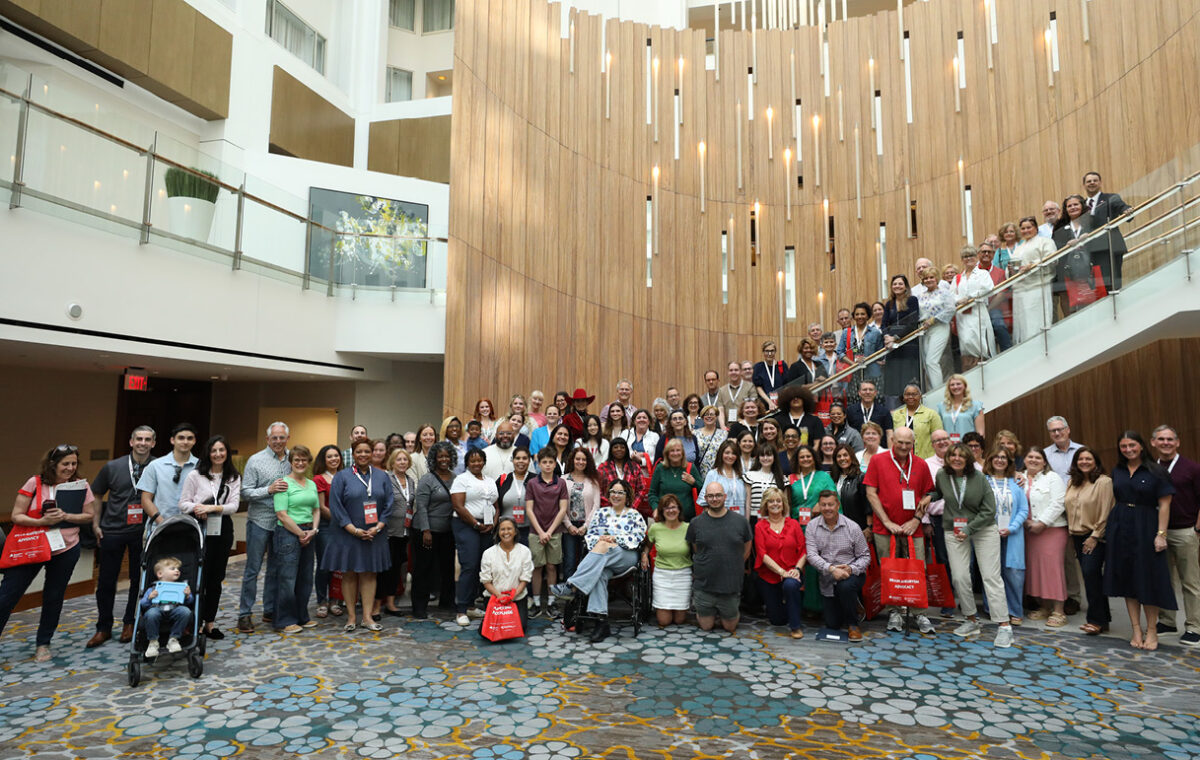The Brain Aneurysm Foundation Rallies Support Among Lawmakers and Health Agencies to Increase Critical Research Funding for Disease Prevention and Detection

Advocates, survivors, and families of those who lost loved ones work to expand bi-partisan congressional coalition driving “Ellie’s Law”
Hanover, Mass., May 6, 2025 – The Brain Aneurysm Foundation (BAF), the leading advocacy organization supporting education, research, and policy to transform the treatment of brain aneurysms, today will be joined by advocates from more than two dozen states to support “Ellie’s Law,” a bi-partisan bill recently re-introduced in Congress to increase research funding for the prevention of ruptures and detection of the deadly disease.
“Surgical interventions for those diagnosed with a brain aneurysm are highly effective, but only if people know they are at risk prior to a rupture. After decades of research, we are now on the cusp of new advances, including blood-based biomarkers and AI-based prediction models, that will save lives and prevent long-term disability by detecting aneurysms before a rupture occurs,” said Christine Buckley, Executive Director of the Brain Aneurysm Foundation. “Continued education and awareness of this disease and its enormous cost to families and society is critical to saving lives, and we are inspired by those who are here to lend their voice and share their stories so they can help others avoid potentially tragic outcomes.”
Between two and five percent of the population has an unruptured brain aneurysm. Each year, approximately 30,000 Americans suffer a rupture and half of those individuals will not survive. Of those that do survive, nearly two-thirds are left with permanent neurological damage.
Despite the potential traumatic impact of brain aneurysms on millions of Americans, annual Federal research funding amounts to less than $3 annually for every person impacted by this disease. Bipartisan legislation was recently re-introduced in the U.S. House (H.R. 2678), that would appropriate $20 million annually for the National Institute of Neurological Disorders and Stroke (NINDS) to support comprehensive research into unruptured intracranial aneurysms, with a focus on prevention and early detection.
“I am proud to reintroduce Ellie’s Law as bipartisan legislation with my Republican colleagues. Now more than ever, it is critical that we secure funding for the NINDS to conduct and support essential research on brain aneurysms, which stands as one of the most underfunded public health crises in our Nation. With agencies such as the Department of Human and Health Services (HHS) experiencing budget cuts to its workforce and grants, preventing potentially fatal brain aneurysms and combatting long-term medical consequences for brain aneurysm survivors will require significant innovations only meaningful funding can deliver,” said Rep. Yvette Clarke. “Ellie’s Law will make huge strides in cementing our long-term commitment for new treatment discoveries to save the lives of patients, who are disproportionately women and African Americans. It’s a privilege to support this necessary legislation and look forward to it being signed into law.”
A brain aneurysm is a weak, bulging area in an artery in the brain. When they rupture, blood spills into the space between the skull and the brain, which is a serious type of stroke known as a subarachnoid hemorrhage. While brain aneurysms are most prevalent in people ages 35 to 60, they can also occur in children. Women over the age of 55 have a higher risk of brain aneurysm rupture than men and are generally at greater risk. Brain aneurysms are also seen at higher rates in African American and Latino populations. Ellie’s Law is named for Ellie Helton, a 14-year-old from North Carolina who died from a brain aneurysm on her second day of high school.
“As an advocate for better brain health outcomes, I’m proud to support Ellie’s Law. No family should have to go through the heartbreak or financial burden from a disease we have the power to prevent,” said Senator Markwayne Mullin. “We have to continue pushing for real progress in brain aneurysm research, and I’m committed to working with my colleagues in the Senate to make sure that critical funding moves forward.”


 Brain Aneurysm Foundation
Brain Aneurysm Foundation